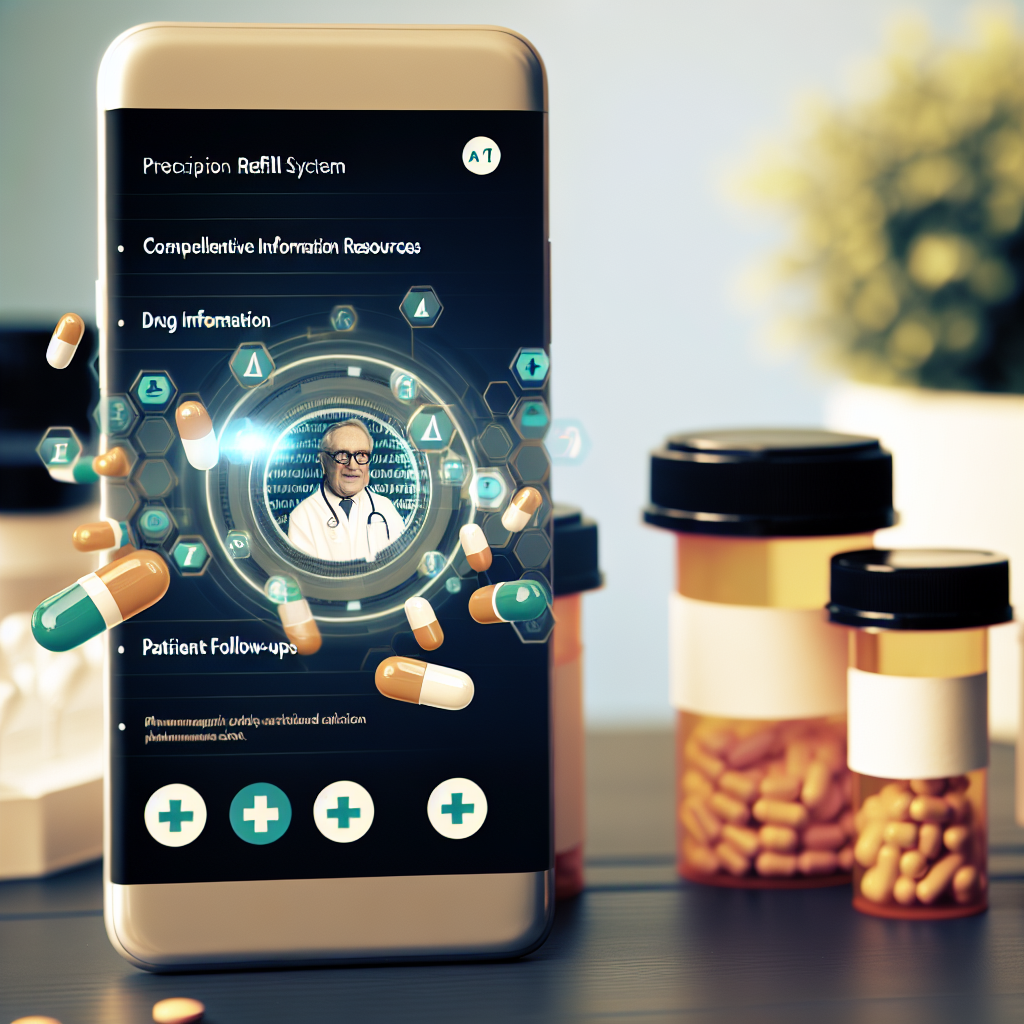Introduction
In an era where technology continues to transform numerous industries, the pharmaceutical sector is increasingly adopting artificial intelligence (AI) to enhance various services, most notably telephony. AI-driven telephony services represent a powerful tool for improving communication between healthcare providers, patients, and pharmacists. This article explores the best usage cases for these services in the pharmaceuticals industry, highlighting areas such as prescription refills, drug information dissemination, and patient follow-ups. Understanding the potential of AI in these contexts can lead to improved patient outcomes and operational efficiencies for healthcare professionals.
Enhancing Prescription Refills
One of the most significant applications of AI-driven telephony services in the pharmaceutical industry is in managing prescription refills. Traditionally, patients have had to make phone calls to their pharmacies, navigating through menus and potentially facing long wait times. These challenges can lead to delays in obtaining necessary medications, impacting patient health. AI-enhanced telephony systems can streamline this process in a number of ways.
Firstly, AI-driven chatbots can handle mundane inquiries about refill statuses, allowing pharmacists to devote their time to more complex tasks that require human intervention. By utilizing natural language processing, these chatbots can interpret and respond to patient requests accurately, providing immediate confirmations of refill eligibility and pickup instructions. Additionally, they can remind patients when it is time to refill, directly through automated calls or messages, ensuring what is often a forgotten task is addressed promptly.
This system not only improves patient satisfaction by reducing wait times and providing timely information, but it also optimizes pharmacy workflows, as pharmacists can focus on patient counseling and clinical services rather than administrative responsibilities. Therefore, AI-driven telephony offers a dual benefit, enhancing the patient experience while improving operational efficiency within pharmacies.
Facilitating Drug Information Dissemination
Another crucial application of AI-driven telephony services is in disseminating drug information to patients. As medications become more complex and specialized, patients often require assistance understanding their prescriptions, potential side effects, and drug interactions. AI telephony systems can serve as a reliable resource for this critical information.
For instance, when a patient has questions regarding a medication, they can call a dedicated helpline powered by an AI system that utilizes advanced databases and algorithms to provide accurate, real-time answers. These systems can address queries about dosages, administration routes, and contraindications, all while adhering to privacy protocols to protect patient information.
Moreover, AI-driven telephony can be programmed to offer information in multiple languages, catering to diverse patient populations. It can also analyze the queries received to identify trends in patient inquiries, enabling pharmaceutical companies and healthcare providers to better understand common areas of confusion. This insight can guide future educational efforts, improving patient knowledge and adherence to medication regimens.
Streamlining Patient Follow-Ups
AI-driven telephony services also play a vital role in patient follow-ups, particularly in ensuring adherence to medication and facilitating ongoing communication between patients and healthcare providers. Following up with patients after their appointments or the initiation of new medications is crucial for monitoring health outcomes and addressing any issues that may arise.
Utilizing automated follow-up calls or messages, healthcare providers can check in with patients regarding their progress, fostering a sense of support and accountability. These systems can also gather valuable data on patient responses to medications, highlighting potential side effects or complications that may require clinical intervention.
Furthermore, AI can analyze follow-up data to assess trends in medication adherence, allowing healthcare providers to tailor their approaches to individual patients. For example, if certain patients are consistently reporting issues with a specific drug regimen, healthcare providers can proactively reach out to offer assistance or consider alternative therapies. This targeted approach not only improves patient safety but also enhances overall therapeutic outcomes.
Improving Operational Efficiency for Healthcare Providers
The implementation of AI-driven telephony services in the pharmaceutical sector improves patient-centered communication and operational efficiency for healthcare providers. By automating routine inquiries, administrators and support staff can focus on more complex tasks that require human insight, improving overall service delivery.
In addition, data collected through these telephony systems can provide valuable insights into patient behavior and preferences. This data can inform strategic decisions within pharmaceutical companies and healthcare institutions, helping to identify areas where patient education and support may be lacking. By understanding these dynamics, organizations can better tailor their services to meet the unique needs of their patient populations.
Ultimately, the efficient use of AI in telephony services can lead to cost savings for healthcare organizations. Reduced call handling times and streamlined workflows contribute to lower overhead costs, optimizing resource allocation.
Adhering to Compliance and Ethical Standards
While the benefits of AI-driven telephony services are significant, healthcare providers must also ensure that systems adhere to compliance and ethical standards. Privacy and data security are paramount in the management of patient information. As AI systems collect and process sensitive health data, organizations must implement strict controls to protect patient anonymity and confidentiality.
Additionally, transparency in how AI systems operate is essential. Patients should be informed about the use of AI in their communications and have the right to opt out if they feel uncomfortable. By promoting transparency and patient autonomy, healthcare providers can build trust and foster a positive experience with AI-driven telephony services.
Conclusion
In conclusion, AI-driven telephony services present various innovative opportunities within the pharmaceutical industry, particularly in areas such as prescription refills, disseminating drug information, and conducting patient follow-ups. By leveraging these advanced technologies, healthcare organizations can enhance patient experiences, improve operational efficiency, and promote better health outcomes.
As the pharmaceutical landscape continues to evolve, investing in AI-driven solutions may be indispensable for providers looking to stay ahead in a competitive market. Nevertheless, it is crucial that these advancements are implemented thoughtfully, ensuring that ethical and compliance standards are met, thus preserving patient trust and safeguarding sensitive health information. With these considerations at the forefront, the future of telephony in pharmaceuticals looks promising for both patients and providers alike.

